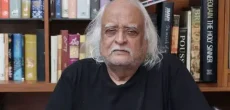A British woman, Fiona Harvey, who claims she was the inspiration for the stalker character in the Netflix hit “Baby Reindeer,” has filed a lawsuit against the streaming giant, demanding $170 million in damages. Harvey has identified herself as the real-life “Martha,” the violent and abusive woman at the center of Richard Gadd’s series, which asserts in its opening episode to be “a true story.”
Harvey’s lawsuit, filed in California, alleges that the claim is “the biggest lie in television history,” asserting that Netflix and Richard Gadd fabricated the story out of greed and a desire for fame, aiming to attract viewers and profit while destroying her life. A Netflix spokesperson responded by stating the company’s intention to defend the matter vigorously and support Gadd’s right to tell his story.
Also Read: Apple Settles $490m Lawsuit Over CEO’s China Remarks
The seven-episode series, which premiered in April, is based on Gadd’s one-man play and quickly became a huge hit. It depicts a fictionalized version of Gadd enduring a disturbing ordeal in which a woman named Martha sends thousands of harassing emails, texts, and voice messages, and even sexually assaults him. Gadd has stated that he altered details about Martha to protect her identity, but amateur sleuths identified Harvey and began contacting her on social media. Harvey has since appeared on British television to deny the allegations, asserting she never bombarded Gadd with messages or attacked him.
The lawsuit accuses Netflix and Gadd of defamation, intentional infliction of emotional distress, and negligence, among other claims. It alleges that the show falsely portrayed Harvey as a twice-convicted stalker who was sentenced to five years in prison and who sexually assaulted Gadd, all for the sake of a more compelling story that would generate revenue. The suit criticizes Netflix for failing to verify the truthfulness of Gadd’s narrative.
The case underscores the complex issues surrounding true crime adaptations and the responsibility of creators and platforms in portraying real-life events and individuals.











